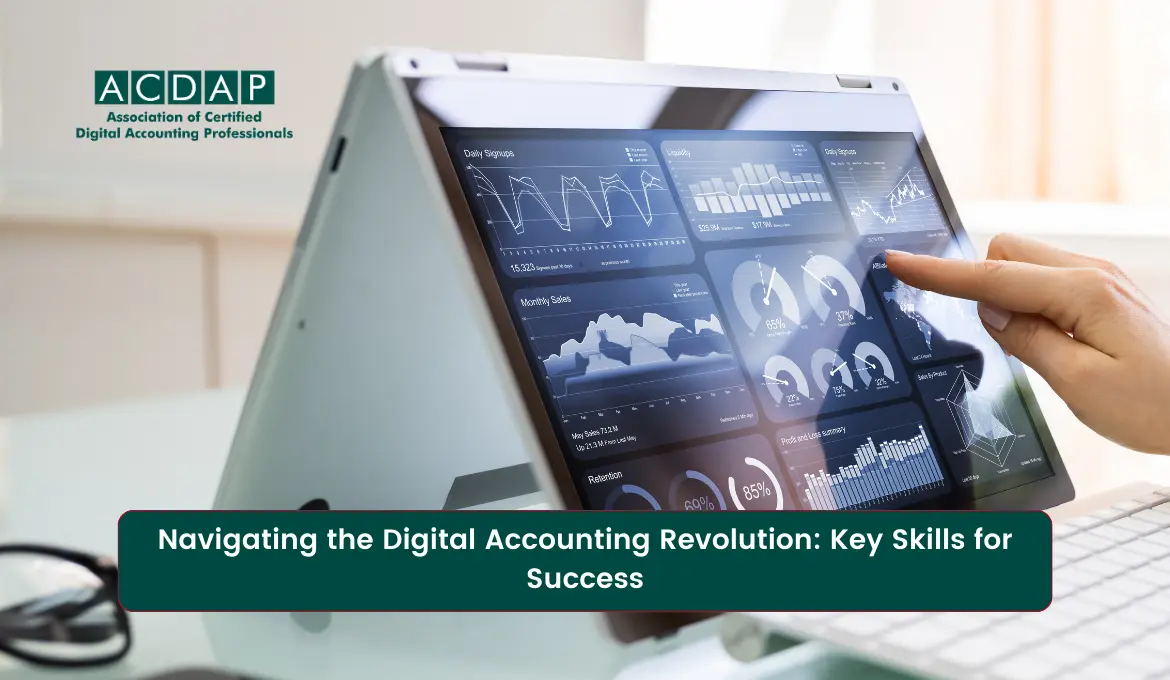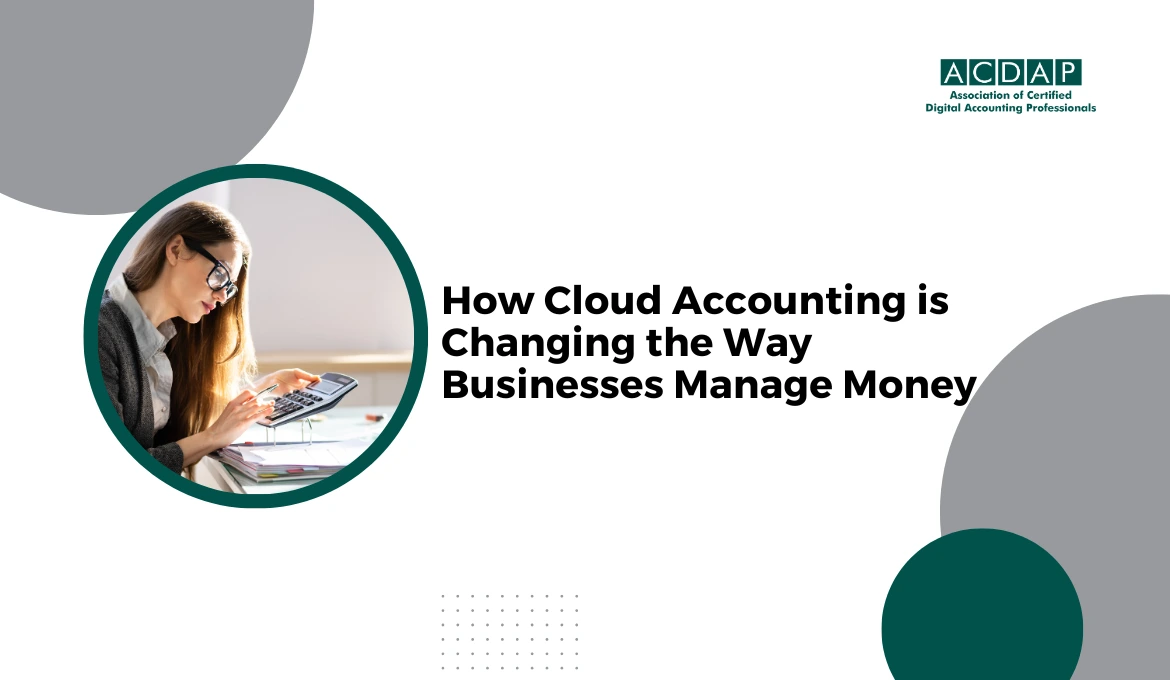The accounting industry is undergoing a significant revolution with the advent of digital technology. As traditional bookkeeping methods make way for advanced accounting software, accountants must equip themselves with critical skills to succeed in this digital era. This comprehensive blog will explore the essential skills needed to navigate the digital accounting revolution, focusing on leveraging popular accounting software like QuickBooks.
Embracing Cloud-Based Accounting Software
Cloud-based accounting software, such as QuickBooks, has revolutionised financial management. This section discusses the advantages of cloud-based solutions, including real-time data access, enhanced security, and remote work capabilities. It emphasises the need for accountants to embrace cloud-based accounting software and adapt to a more flexible and collaborative work environment.
The move to cloud-based accounting has transformed the way accountants manage financial data. With data stored securely on remote servers and accessed through the Internet, accountants can access financial information from any device with an Internet connection. This real-time data access enables accountants to work more efficiently, make informed decisions, and respond to client needs promptly.
Cloud-based accounting software also offers enhanced security measures, protecting sensitive financial information from cyber threats. Additionally, the flexibility of remote work empowers accountants to collaborate seamlessly with team members, clients, and stakeholders, irrespective of geographic location.
Mastering QuickBooks Features and Functionality
As one of the leading accounting software platforms, QuickBooks offers many features that streamline financial processes. This subtopic explores the essential QuickBooks functionalities, including invoice and expense tracking, financial reporting, payroll management, and integrations with other business tools. Accountants must master these features to harness the full potential of QuickBooks.
QuickBooks' user-friendly interface and intuitive navigation make it accessible to accounting professionals and business owners with limited accounting knowledge. Accountants can create and send professional invoices, track expenses, and quickly generate customised financial reports. The software offers integrated payroll management, simplifying the payroll process and ensuring accurate and timely payments to employees and contractors.
Furthermore, QuickBooks' compatibility with various third-party applications allows seamless integration with other business tools. From CRM systems to e-commerce platforms, these integrations streamline data transfer, reduce manual data entry, and enhance overall business efficiency.
Data Analysis and Interpretation
With vast financial data available through digital accounting software, accountants must excel in data analysis and interpretation. This section discusses the significance of data analytics skills in making informed financial decisions, identifying trends, and spotting potential risks or opportunities.
QuickBooks' robust financial reporting capabilities enable accountants to generate various reports, such as profit and loss statements, balance sheets, and cash flow reports. These reports provide valuable insights into the financial health of a business and aid in identifying areas for improvement or growth. By mastering data analysis, accountants can transform raw financial data into actionable insights for clients and companies.
Additionally, data analysis skills are crucial in financial forecasting and budgeting. Accountants can use historical financial data to predict trends and create realistic business plans. This foresight helps companies to make strategic decisions and stay prepared for changing market conditions.
Cybersecurity and Data Protection
The digital accounting revolution brings about new cybersecurity and data protection challenges. This subtopic highlights the importance of understanding cybersecurity best practices and implementing robust data protection measures. Accountants must safeguard sensitive financial information and stay informed about the latest security threats.
QuickBooks' cloud-based infrastructure means financial data is stored remotely, raising concerns about data security. However, QuickBooks employs advanced encryption and security protocols to protect sensitive information from unauthorised access. Additionally, regular data backups and disaster recovery options ensure financial data remains safe and accessible even during a system failure.
Accountants should also be aware of phishing scams and social engineering attacks that target financial professionals. By staying informed about the latest cybersecurity threats and implementing best practices, accountants can protect their clients' data and professional reputations.
Continuous Learning and Professional Development
Continuous learning is critical for accounting professionals in the rapidly evolving digital landscape. This section discusses the value of ongoing professional development, including attending workshops, webinars, and certifications. It also explores the role of technology in enabling lifelong learning through e-learning platforms and virtual training sessions.
The digital accounting revolution constantly introduces new software updates and features, and accountants must stay updated to remain competitive. Continuous learning allows accountants to enhance their existing skills, learn about emerging technologies, and explore innovative solutions for financial management.
QuickBooks offers various training resources and certifications for accountants to become QuickBooks Certified Professionals. These certifications demonstrate expertise in using the software and provide a competitive edge in the job market. By pursuing professional development opportunities, accountants demonstrate their commitment to excellence and continuous career improvement.
Communication and Collaboration
Effective communication becomes paramount as accounting teams embrace remote work and cloud-based collaboration tools. This subtopic delves into the importance of clear and concise communication among team members, clients, and stakeholders. Accountants must hone communication skills to ensure seamless collaboration and maintain strong professional relationships.
Cloud-based accounting software like QuickBooks enables real-time collaboration, allowing multiple users to access and work on financial data simultaneously. Accountants can communicate with team members and clients through integrated chat features or video conferencing, fostering productive discussions and efficient decision-making.
Clear communication is crucial when explaining financial data and analysis to clients or non-financial stakeholders. Accountants must be adept at conveying complex financial information simply and understandably, empowering clients to make informed business decisions.
Adaptability and Resilience
The digital accounting revolution is continuously reshaping the accounting landscape. This section emphasises the need for accountants to be adaptable and resilient in the face of change. Whether learning new software, adapting to remote work, or embracing emerging technologies, accountants must be flexible to thrive in the evolving accounting industry.
QuickBooks, as a cloud-based software, undergoes frequent updates and enhancements. Accountants should embrace these changes and continuously develop their skills to leverage the software's full potential. Additionally, staying open to learning about new technologies and automation tools allows accountants to streamline processes and stay ahead of the curve.
Resilience is vital in facing challenges such as cybersecurity threats or technology disruptions. Accountants should proactively address potential risks and have contingency plans to ensure financial operations' continuity. By being adaptable and resilient, accountants can navigate any obstacles in the digital accounting landscape.
Conclusion
The digital accounting revolution has transformed how accountants manage financial data and conduct their work. Cloud-based accounting software like QuickBooks has become invaluable for streamlining financial processes, enabling real-time collaboration, and improving overall efficiency. As accountants navigate this digital era, mastering essential skills such as cloud-based software proficiency, data analysis, cybersecurity, and communication is crucial for success.
Embracing continuous learning and professional development ensures that accountants remain up-to-date with the latest advancements in technology and industry practices. By staying adaptable and resilient, accountants can seize opportunities and overcome challenges the ever-changing digital landscape presents.
In conclusion, the future of accounting lies in embracing digital innovation and leveraging powerful tools like QuickBooks. As accounting professionals equip themselves with the necessary skills, they position themselves for success in the digital accounting revolution, becoming indispensable contributors to the financial success of their organisations.


























